If you’re thinking about adding a quaker parrot to your family, you might have stumbled upon this page looking for information on their noise levels. Are quaker parrots loud? No parrot can be considered quiet, but it’s important to get the specifics on the species you’re interested in.
Let’s go into quaker parrot noise levels, whether you can keep these birds in an apartment and why a quaker parrot might be overly loud all of a sudden.
Are quaker parrots loud?
Although it obviously all depends on your definition of loud, the short answer is yes, quaker parrots can be very noisy. Even more experienced parrot keepers, who are definitely used to noise, tend to find them relatively loud. The pitch of their calls is especially grating to some.
Loudness levels in parrots tend to differ from individual to individual and quakers are no exception in this. Some people might find their quaker parrot rarely makes noise, especially if it’s a solo bird. There is, however, no guarantee.
Pretty much all parrots have naturally evolved to be as loud as possible. Most species, including quakers, are extremely social and use their various contact calls and other sounds to keep in contact with each other, even if the other bird is a tree away (Martella & Bucher, 1990). That’s also why a flock of quakers will generally be much louder than a solo one.
In the home, it’s not really possible to train your quaker parrot to be quiet. That being said, there are some factors that can cause excessive vocalization, which we’ll go into below.
Did you know? Aside from their screams, quaker parrots are also known for producing a soft, endearing ‘purring’ noise. In fact, they tend to make soft sounds throughout the day while they go about their business.
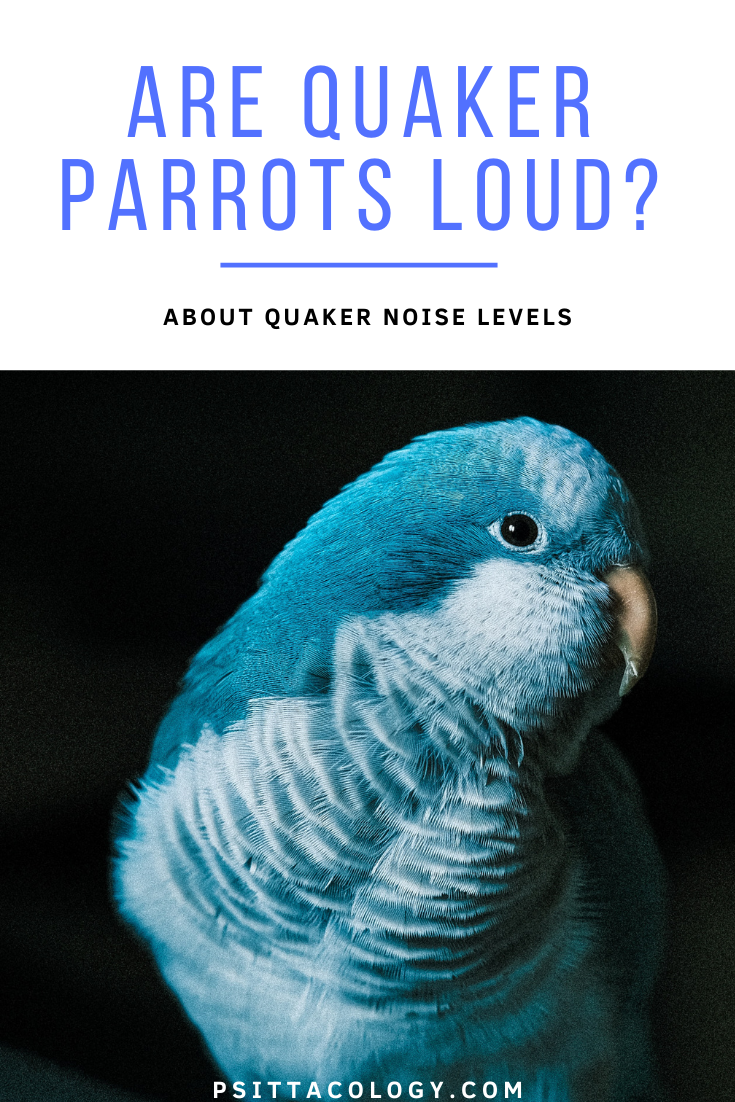
Can you keep a quaker parrot in an apartment?
If you live in an apartment and are interested in keeping a quaker parrot, it’s recommendable to at least talk to your neighbors first. Because yes, unless there’s excellent soundproofing, they will hear your bird. Quaker parrot screams are piercing and travel quite far.
The good thing is that parrots, unless something is wrong, only vocalize during the day. Still, a quaker’s noise levels can be bothersome, especially on weekends when people might want to sleep in.
Why is my quaker parrot being loud?
If your quaker parrot is suddenly being louder than usual, this can be cause for concern. Not just because your own mental health can suffer if your bird screams incessantly, but also because excessive vocalization can indicate an underlying issue.
Some reasons your quaker parrot might be noisier than usual are:
Your quaker parrot is lonely
As we’ve discussed, parrots are very social. Your quaker might make frequent flock calls out of loneliness, in search of a flock to socialize with. These flock calls can be pretty grating.
We’ve all been through phases of not having as much time to take our birds out of their cages or having to be away from home more. Before you adopt a quaker or any other type of parrot, though, you’ll have to think about whether you’re able to spend multiple hours a day with your bird.
If you don’t have enough time to dedicate to socialization, it’s a good idea to get more than one quaker parrot.
Your quaker parrot is bored
Is it possible your quaker doesn’t have enough enrichment options to keep its smart brain engaged? Boredom can lead to excessive vocalization in parrots. For those moments that you can’t spend with your parrot, you’ll have to provide plenty of parrot toys and other fun things to keep it busy.
Try offering foraging boxes, whole vegetables to graze on and lots of parrot toys. One cool thing about quaker parrots is that they naturally build huge nests, so you could offer parrot-safe material for your bird to keep itself busy with.
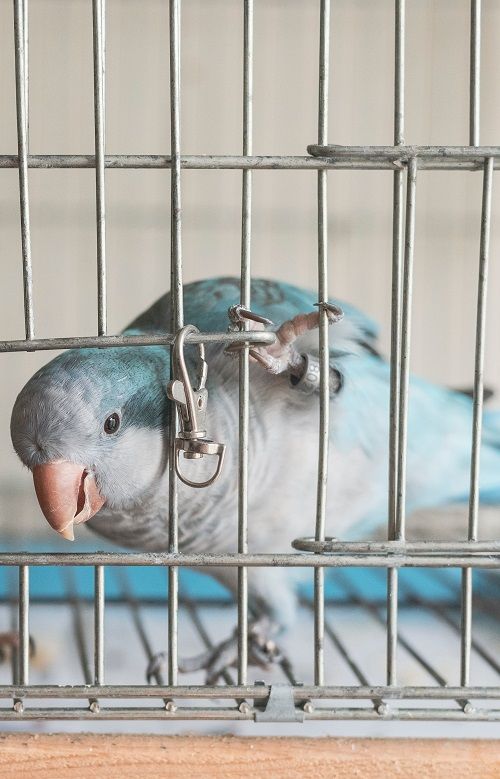
Your quaker parrot is not feeling well
Take a good look at your bird if it’s being louder than usual. They hide injury or disease well, but may make more noise if they’re not feeling their best.
Also check out your quaker’s environment. Might there be something bothering it? Scary shadows on the wall, a cold draft or other small discomforts can also cause excessive screams in some cases.
Your quaker parrrot is hormonal
During springtime, parrots can in unlucky cases get a bit… strange. Their hormones surge, they want to build a nest and find a mate.
Aside from wanting to hump everything in sight and regurgitating food, your quaker parrot might display more problematic behaviors like feather plucking, aggression and, yes, screaming.
There isn’t much that can be done aside from possibly having to leave your bird alone a bit more until it settles down. Try to make sure it gets plenty of sleep and don’t pet its body, as this can be interpreted as mating behavior and make things worse.
Your quaker parrot is sleep-deprived
Parrots need quite a bit more sleep than humans. Giving them 12 hours of shuteye is not a bad idea, so if you tend to be up until late with the lights on, it can be a good idea to cover your bird’s cage or wheel it into a dark room.
Without enough sleep, your quaker parrot can end up a cranky mess. Aggression and screaming are not unusual in sleep-deprived parrots.
Your quaker parrot is just having fun
Although there are a lot of negative reasons for a (quaker) parrot to vocalize more than usual, there’s also a positive one. As we’ve mentioned, parrots naturally use their screams and squawks to communicate.
If you’re having guests over, are playing music or have the TV on at high volume, you might notice your quaker parrot vocalizing more than usual. Although this can be annoying, especially if you’re trying to entertain, you should keep in mind it’s not inherently a bad thing.
Your quaker is just trying to get involved! They tend to love sounds all around them and often can’t help but join in. Here at Psittacology headquarters, we always notice the parrots’ noise and activity levels shooting up when we’re talking to house guests.
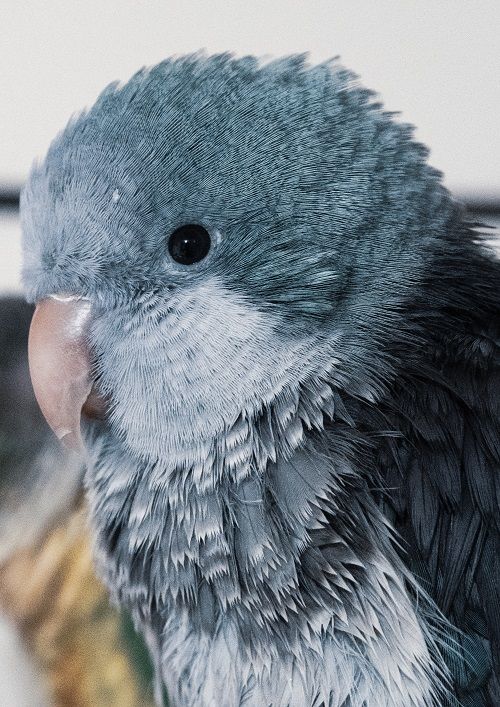
Quieter pet parrots
If you’re looking for a quiet pet, obviously a parrot is not for you. Even the smallest budgie can and will produce a pretty impressive amount of noise!
That being said, there are some parrots that aren’t as loud as others. If you’ve concluded that a quaker might be too loud for you, you could consider:
- Budgies (their flock calls can be annoying but are not nearly as loud or piercing).
- Cockatiels (find out more in the article on cockatiel noise levels).
- Bourke’s parakeets.
- Parrotlets.
You can find more of the quieter species in the list of quiet pet birds.
So, are quaker parrots loud? In the end, a lot of it does depend on your own definition of loud – and that of your neighbors.
Be sure to watch some videos of quaker parrots vocalizing to make sure you can handle this sort of noise throughout the day, because you never know whether you’ll end up with a quiet or loud individual.
If you have any more questions about quaker parrot noise levels or if you want to share your own experiences, don’t hesitate to leave a comment below.
Sources
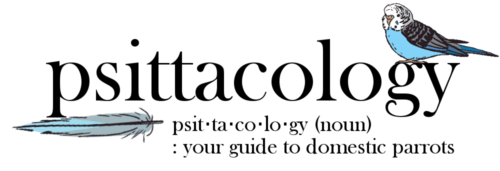
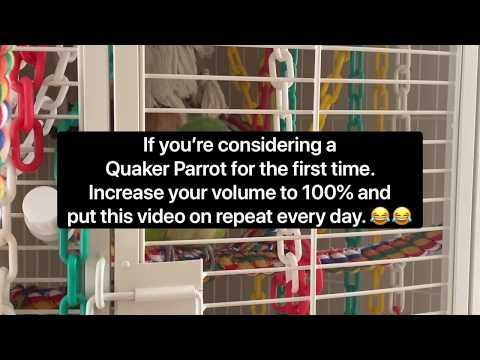
What to do when Quaker attacks you,but doesn’t bother husband? She is probably hormonal. Any suggestions.
Hey! It’s such a difficult thing to deal with isn’t it, especially with quakers which can be extra feisty. It’s normal for a parrot to focus their hormonal anger at a certain person and leave others alone. Make sure you keep your bird super busy with foraging boxes, lots of toys, baths and more. Also try making sure it gets 12+ hours of complete darkness for sleeping. If it really is hormonal behavior, it should subside in a few weeks. If not, there might be something more going on.
Good luck!
Thank you for the information. It was very clearly stated and very helpful.
Hello I recently purchased a female Quaker bird. She just turned one year old. I fell in love with her because she had her left wing amputated and I knew she needed extra care and attention. My greatest concern with her is keeping her safe. She is active and doesn’t realize she can not fly. If you have any suggestions that could help me regarding activities that she can do to keep her healthy and happy please let me know. I love her. Thanks
Hello! Actually, I’ve got you covered. I had the same issue with a handicapped lovebird and I found this Facebook group. If you use FB it can be a great resource! You should have plenty of options since I assume that your birdie does climb well still. 🙂 Good luck!
Hi my quaker bird is too much attached to me . If I go in another room he started to scream. He want let me talk to my children . What should I do ?
Then he screams too loved . How can I stop him.???
I understand, this is not uncommon with quakers and parrots in general! Firstly, have you done everything possible to reduce hormones? This sort of behavior becomes stronger if the bird is hormonal. You could check out this post over at my friends at Parrot Essentials to check if you’ve done everything: hormonal parrot.
Other than this, much of it is about getting the parrot used to you leaving or doing something else. Ignore any and all screams. Don’t give attention until he stops. You can also try making something like a clicking noise to reply to the screams – some parrots will start clicking too instead of screaming, which at least helps with the noise. Good luck!
I live in Queens and have a bird feeder. I get visits on a daily basis from the wild quaker parrots that nest in the area. I know they are coming from the noise they make.
I’m not surprised! I live in Spain and they are in various major cities – to the point where Madrid and Barcelona are looking for ways to get rid of them, I’m afraid. It’s so confusing to look at a piece of bread on the sidewalk and see a pigeon and a quaker fighting over it. They’re super noisy and their huge nests are quite a sight to see.